-
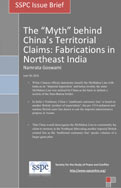
While Chinese official statements classify the McMahon Line with India as an “Imperial Imposition’ and hence invalid, the same McMahon Line was utilized by China as the basis to delimit a section of the Sino-Burma border.
-
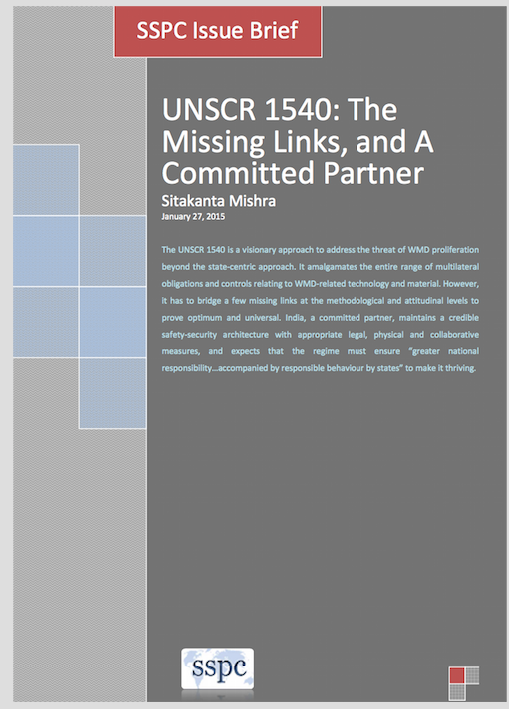
The UNSCR 1540 is a visionary approach to address the threat of WMD proliferation beyond the state-centric approach. It amalgamates the entire range of multilateral obligations and controls relating to WMD-related technology and material. However, it has to bridge a few missing links at the methodological and attitudinal levels to prove optimum and universal.
-
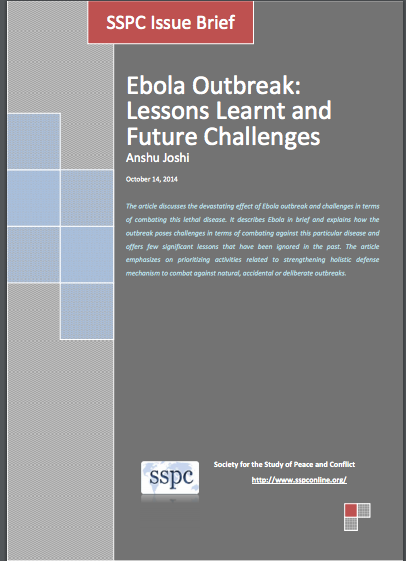
The article emphasizes on prioritizing activities related to strengthening holistic defense mechanism to combat against natural, accidental or deliberate outbreaks.
-
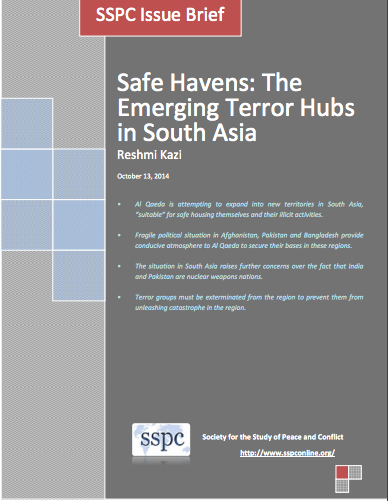
Al Qaeda is attempting to expand into new territories in South Asia, “suitable” for safe housing themselves and their illicit activities. Fragile political situation in Afghanistan, Pakistan and Bangladesh provide a conducive atmosphere to Al Qaeda to secure their bases in these regions. The situation in South Asia raises further concerns over the fact that India and Pakistan are nuclear weapons nations. Terror groups must be exterminated from the region to prevent them from unleashing catastrophe in the region.
-
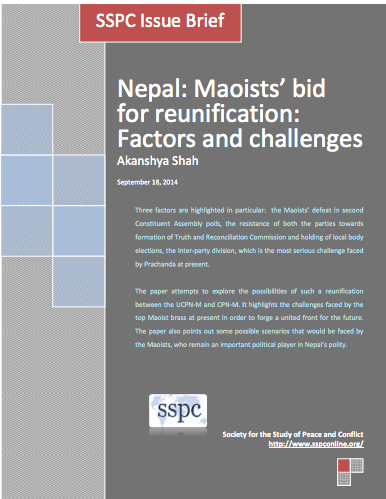
Three factors are highlighted in particular: the Maoists’ defeat in second Constituent Assembly polls, the resistance of both the parties towards formation of Truth and Reconciliation Commission and holding of local body elections, the inter-party division, which is the most serious challenge faced by Prachanda at present. The paper attempts to explore the possibilities of such a reunification between the UCPN-M and CPN-M. It highlights the challenges faced by the top Maoist brass at present in order to forge a united front for the future. The paper also points out some possible scenarios that would be faced by the Maoists, who remain an important political player in Nepal’s polity.
-
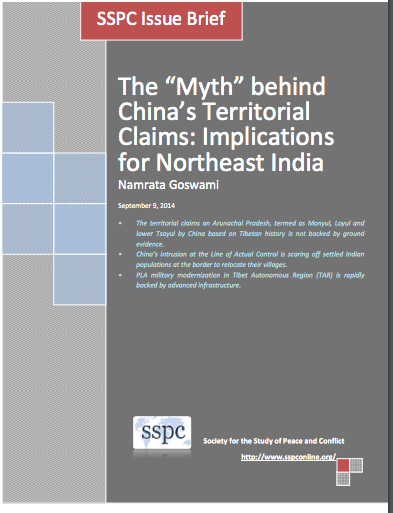
The territorial claims on Arunachal Pradesh, termed as Monyul, Loyul and lower Tsayul by China based on Tibetan history is not backed by ground evidence. China’s intrusion at the Line of Actual Control is scaring off settled Indian populations at the border to relocate their villages. PLA military modernization in Tibet Autonomous Region (TAR) is rapidly backed by advanced infrastructure.
-
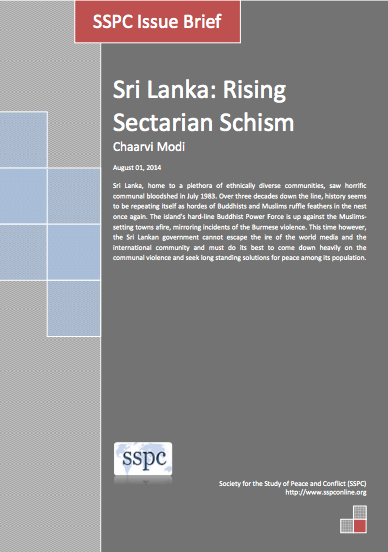
Sri Lanka, home to a plethora of ethnically diverse communities, saw horrific communal bloodshed in July 1983. Over three decades down the line, history seems to be repeating itself as hordes of Buddhists and Muslims ruffle feathers in the nest once again. The island's hard-line Buddhist Power Force is up against the Muslims- setting towns afire, mirroring incidents of the Burmese violence. This time however, the Sri Lankan government cannot escape the ire of the world media and the international community and must do its best to come down heavily on the communal violence and seek long standing solutions for peace among its population.
-
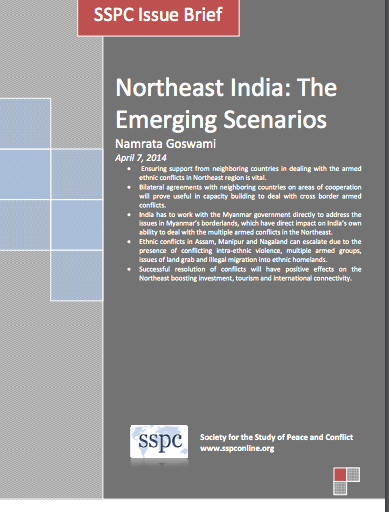
Ensuring support from neighboring countries in dealing with the armed ethnic conflicts in Northeast region is vital. Bilateral agreements with neighboring countries on areas of cooperation will prove useful in capacity building to deal with cross border armed conflicts. India has to work with the Myanmar government directly to address the issues in Myanmar’s borderlands, which have direct impact on India’s own ability to deal with the multiple armed conflicts in the Northeast.
-
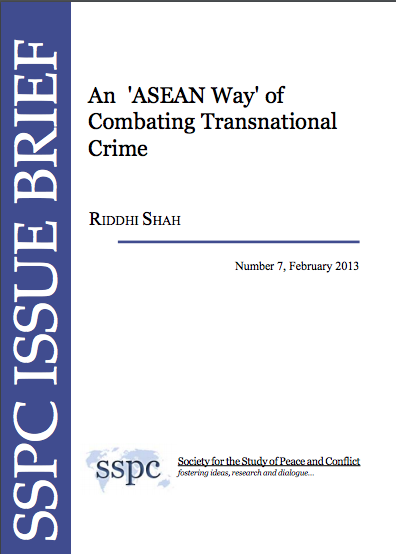
The United Nation’s Office for Drugs and Crime (UNODC) believes that organized crime groups roughly earn $250 billion per year. Moreover the annual turnover of transnational organized criminal activities such as drug trafficking, illegal arms trade and the smuggling of immigrants is estimated at $ 870 billion annually. Transnational crime, like several other security threats such as terrorism, maritime terrorism and piracy has no universally accepted definition.
-
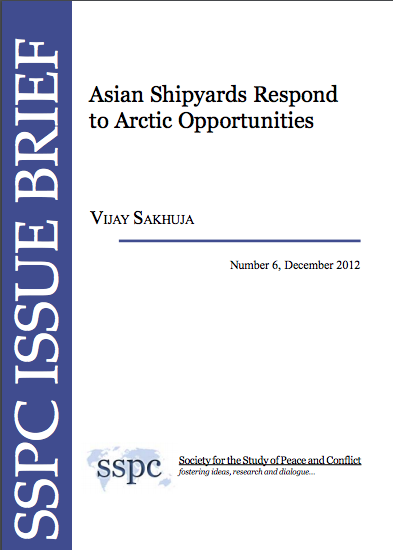
The Arctic sea ice has refrozen after a relatively longer summer this year compared with 2011. During the season, there were three significant shipping events. First, the navigation conditions during the year were favourable and a tanker was in transit as on 30 November, compared to 18 November 2011 when the last voyage had been completed. Second, 46 vessels transited through the Northern Sea Route (25 eastbound and 21 westbound) which compares favorably to 34 transits in 2011 and only four in 2010.
Paxton ported to drupal by DropThemes.in